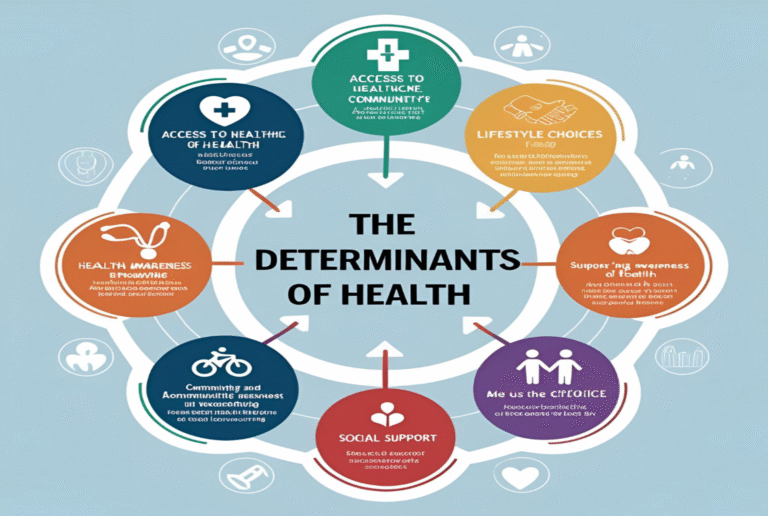Health Administration Jobs
Health Administration Jobs: Building the Backbone of Modern Healthcare
Health Administration Jobs When we think of healthcare, images of doctors in scrubs and nurses tending to patients immediately come to mind. However, behind the scenes lies an equally vital cadre of professionals who ensure hospitals function, policies are followed, and budgets are balanced. These unsung heroes are health administrators—specialists in the business of healthcare.
From managing billion-dollar hospital systems to implementing public health initiatives in rural communities, health administration jobs are diverse, dynamic, and increasingly in demand. This article offers an in-depth look at the field, its various roles, required qualifications, career growth opportunities, and the future of healthcare administration.
Understanding Health Administration
Health administration is the discipline concerned with managing healthcare systems, such as hospitals, clinics, nursing homes, insurance companies, and public health organizations. Unlike clinical roles, health administrators focus on:
- Organizational leadership
- Financial management
- Regulatory compliance
- Human resources
- Health informatics
- Strategic planning
- Public policy implementation
In essence, they make sure that the healthcare ecosystem runs like a well-oiled machine—efficient, compliant, and patient-centric.
Why Health Administration Jobs Matter
Modern healthcare is no longer just about treating illness—it’s about running a complex, integrated service system. Here’s why health administration jobs have become indispensable:
1. Navigating Complexity
Healthcare involves regulations, insurance, technology, and patient rights. Administrators help navigate this labyrinth, ensuring legal and ethical practices.
2. Financial Stewardship
With rising healthcare costs and tightening budgets, financial efficiency is crucial. Administrators are often responsible for overseeing multimillion-dollar operations.
3. Supporting Patient Outcomes
While not directly involved in treatment, good administration leads to better patient care by optimizing resources, reducing wait times, and enhancing service quality.
4. Crisis Management
Whether it’s responding to pandemics or managing staff shortages, administrators play a critical role in crisis planning and execution.
Types of Health Administration Jobs
The field of health administration offers a vast array of job opportunities across sectors and specializations. Here are some key roles:
1. Hospital Administrator
Responsible for overseeing the operations of entire hospitals or specific departments. Duties include budgeting, compliance, staffing, and patient satisfaction.
2. Clinical Manager
Supervises a particular department, like cardiology or oncology. They bridge clinical teams with administrative leadership.
3. Health Information Manager
Manages digital health records, data privacy, and the implementation of electronic health record (EHR) systems.
4. Nursing Home Administrator
Oversees the daily operation of long-term care facilities, including staff coordination, patient care standards, and regulatory adherence.
5. Public Health Administrator
Works in government or non-profits to plan and implement health programs, often targeting disease prevention or community wellness.
6. Healthcare Consultant
Advises organizations on improving efficiency, compliance, and profitability. May work independently or for consulting firms.
7. Medical Practice Manager
Handles administrative tasks for small to mid-sized medical practices, including scheduling, billing, and personnel management.
8. Health Policy Analyst
Studies healthcare laws and recommends changes to policy. Often works with think tanks, governmental bodies, or lobbying groups.
Educational Requirements
Bachelor’s Degree
Entry-level roles typically require a bachelor’s degree in health administration, public health, nursing, or business. Common roles at this level include assistant manager, patient service representative, or administrative coordinator.
Master’s Degree
Many mid-to-senior roles require a Master of Health Administration (MHA), Master of Public Health (MPH), or MBA with a healthcare focus. These programs cover finance, ethics, epidemiology, law, and informatics.
Doctorate
For academic, policy, or executive roles, a Doctor of Public Health (DrPH) or PhD may be necessary.
Certifications
While not always mandatory, the following certifications can enhance credibility:
- Certified Medical Manager (CMM)
- Fellow of the American College of Healthcare Executives (FACHE)
- Certified Professional in Healthcare Quality (CPHQ)
- Registered Health Information Administrator (RHIA)
Skills Needed in Health Administration
Success in health administration hinges on a combination of soft skills, technical know-how, and industry awareness. Key competencies include:
1. Leadership & Team Management
Administrators must motivate teams, resolve conflicts, and foster collaboration across departments.
2. Financial Acumen
Budget planning, cost reduction, and revenue cycle management are core responsibilities.
3. Regulatory Knowledge
A firm grasp of healthcare laws (HIPAA, Medicare, ACA) is essential for compliance and strategic planning.
4. Communication
Clear communication with staff, patients, stakeholders, and regulators is critical.
5. Data Literacy
The ability to interpret healthcare analytics for quality improvement and operational decisions is increasingly valued.
6. Problem-Solving
Administrators must be proactive in tackling bottlenecks, inefficiencies, or emergencies.
Work Environments
Health administration jobs are not confined to hospitals. Professionals can work in:
- Government health departments
- Non-profit health organizations
- Managed care organizations
- Research institutions
- Pharmaceutical companies
- Insurance providers
- Tech firms focused on health informatics
Career Path and Advancement
Health administration offers a clear ladder for career growth. A typical trajectory might look like:
- Administrative Assistant / Coordinator (Entry-level)
- Department Manager / Supervisor
- Operations Director / Facility Manager
- Chief Operating Officer (COO) / Chief Administrative Officer
- Chief Executive Officer (CEO) or Health System President
Many professionals switch between sectors or take roles in academia, policy, or consulting as they progress.
Job Outlook and Salary Potential
According to the U.S. Bureau of Labor Statistics, employment of medical and health services managers is projected to grow 28% from 2021 to 2031—much faster than average.
Average Salaries by Role (U.S. estimates):
- Medical Practice Manager: $70,000 – $95,000
- Hospital Administrator: $90,000 – $130,000
- Health Information Manager: $80,000 – $110,000
- Public Health Administrator: $65,000 – $100,000
- Healthcare Consultant: $85,000 – $140,000+
- C-Suite Executive (CEO/COO): $150,000 – $500,000+
Salary varies by location, experience, education, and organization size.
Challenges in Health Administration
1. Burnout and Stress
Long hours, high stakes, and bureaucratic hurdles can lead to administrative burnout.
2. Regulatory Changes
Constantly evolving laws and reimbursement models demand agility and vigilance.
3. Technology Integration
Adapting to new digital systems (EHRs, AI, telehealth) while ensuring staff training and patient data privacy is a complex task.
4. Workforce Shortages
Administrators must manage staffing issues while maintaining care quality—a delicate balance.
Trends Shaping the Future
1. Digital Health Expansion
Telemedicine, AI diagnostics, and mobile apps are changing the way care is delivered. Administrators need to manage this shift strategically.
2. Value-Based Care
The transition from fee-for-service to outcome-based models means administrators must align quality with cost-efficiency.
3. Patient-Centered Systems
Today’s healthcare emphasizes transparency, satisfaction, and holistic wellness. Administration is now focused on the patient experience.
4. Diversity and Inclusion
Building equitable healthcare systems is both an ethical and legal imperative. Administrators are key drivers of D&I initiatives.
5. Global Health Preparedness
From climate change to pandemics, global health threats require international collaboration and adaptive administration.
Global Opportunities
Health administration is not confined to the U.S. or developed countries. There is growing demand worldwide, especially in:
- Emerging economies investing in healthcare infrastructure
- International NGOs focusing on public health
- Multinational hospital chains
- Health tech startups expanding globally
Professionals with multilingual skills and international certifications are particularly valuable in these roles.
How to Start a Career in Health Administration
1. Education First
Earn a degree in healthcare administration, public health, or a related field. Internships during your program are crucial.
2. Gain Entry-Level Experience
Start as a coordinator or assistant in healthcare settings. Observe and learn the operations.
3. Network Actively
Join associations like the American College of Healthcare Executives (ACHE) or Healthcare Financial Management Association (HFMA).
4. Continue Learning
Pursue a master’s degree or certifications to stay competitive. Stay updated with industry trends and attend workshops or webinars.
Conclusion:
Health administration jobs may not grab headlines, but they hold the beating heart of any healthcare system. Administrators ensure that doctors have the resources they need, patients receive timely care, budgets are met, and rules are followed. In an era where healthcare is being redefined by technology, policy shifts, and consumer expectations, the role of administrators is more important—and exciting—than ever before.
If you’re someone who thrives at the intersection of compassion, strategy, and leadership, a career in health administration could be your perfect fit. It’s a path that offers stability, impact, and purpose—where you might never touch a scalpel, but you’ll still save lives.






